MCI Symposium
23rd ANNUAL MILD COGNITIVE IMPAIRMENT SYMPOSIUM
Friday, April 25, 2025 (9:00 am – 4:45 pm US Eastern Time)
THE ANNUAL ALZHEIMER’S PUBLIC EDUCATIONAL FORUM
Friday, May 2, 2025 (10:00 am – 1:00 pm US Eastern Time)
Schedule
MCI Symposium Program
Friday, April 25, 2025
All times in US Eastern Time.
Yakeel Quiroz, PhD, Harvard/MGH
SESSION RECORDINGS
0:00 – Introduction to Symposium and Session
4:53 – Dr. Davatzikos Presentation and Q&A
32:50 – Dr. Bryan James Presentation and Q&A
52:51 – Dr. Howard Chertkow Presentation and Q&A
1:14:05 – Dr. Paola Sebastiani Presentation and Q&A
1:33:32 – Dr. Maria Corrada Presentation and Q&A
1:57:40 – SESSION I – PANEL DISCUSSION
0:00 – Session Introductions
1:41 – Dr. Jasmeer Chhatwal Presentation and Q&A
34:20 – Dr. Yakeel Quiroz Presentation and Q&A
55:48 – Drs. Monica Rosselli and Yakeel Quiroz
1:01:52 – Dr. Christopher Filley Presentation and Q&A
1:19:50 – Dr. Fanny Elahi Presentation and Q&A
1:39:50 – Dr. Nikolaos Scarmeas Presentation and Q&A
2:02:23 – SESSION II – PANEL DISCUSSION
0:00 – Dr. Ron Petersen – Session Introductions
2:04 – Dr. David Knopman Presentation and Q&A
31:01 – Dr. Chris van Dyck Presentation and Q&A
53:35 – Dr. Larry Honig Presentation and Q&A
1:16:30 – Dr. Steven Salloway Presentation
1:35:20 – Dr. Courtney Lane Donovan Presentation and Q&A
1:50:20 – SESSION III – PANEL DISCUSSION
SYMPOSIUM CONVENER
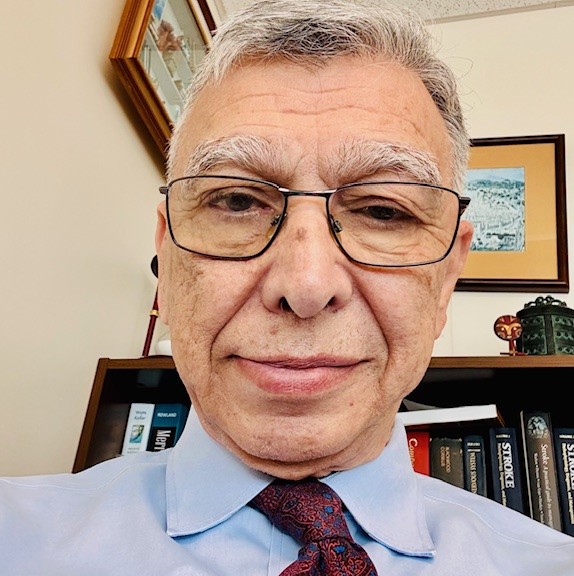
Ranjan Duara, MD, MRCP, FAAN
Dr. Ranjan Duara is the Medical Director of the Wien Center for Alzheimer’s Disease and Memory Disorders at Mount Sinai Medical Center and holds the Denis C. Cole Family Chair in Alzheimer’s Disease Research. In addition, Dr. Duara serves as the Associate Director and leader of the Clinical Core of the 1Florida Alzheimer’s Disease Research Center, a research collaboration between four university medical centers and Mount Sinai Medical Center in Florida. Dr. Duara is a Courtesy Professor of Neurology at the University of Florida College of Medicine, Gainesville, Florida, and the Herbert Wertheim College of Medicine, Florida International University, Miami, Florida. He serves as the Principal Investigator of the State of Florida Dementia Brain Bank Program.
Dr. Duara is a clinical neurologist with a special interest in the use of brain imaging for the diagnosis and treatment of Alzheimer’s disease and other causes of Adult Cognitive Disorders. Through his research in this area, he has helped to enhance what is known about the biology of Alzheimer’s disease.
He completed his undergraduate medical education at Christian Medical College, Vellore, South India, completed two years of neurology residency with Dr. Noshir Wadia at Grant Medical College in Bombay, India, followed by residencies in internal medicine and neurology in the United Kingdom, and in neurology at Thomas Jefferson University Hospital in Philadelphia. He then completed a four-year fellowship in neuroscience and neuroimaging of aging, with Dr Stanley Rapaport at the National Institute on Aging (National Institutes of Health, Bethesda, MD).
Dr. Duara’s research has focused primarily on early diagnosis of Alzheimer’s disease and other dementias, neuroimaging, genetic epidemiology, and the methodology for staging the transition from normal cognitive aging to dementia. He has contributed to more than 250 articles in peer-reviewed scientific journals and has been an investigator in observational studies on aging, as well as clinical trials of novel agents for the treatment of Alzheimer’s Disease. Dr. Duara is also the chair and organizer of the Mild Cognitive Impairment Symposium, which is held annually in Miami Beach.
CHAIRS AND PRESENTERS
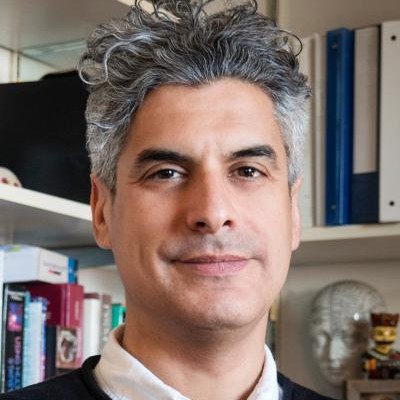

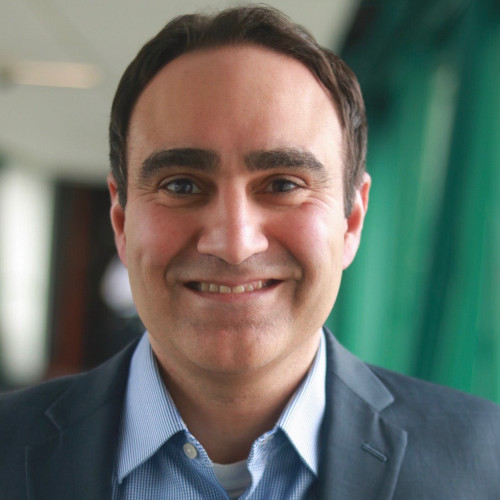
Adam Brickman, PhD
Adam M. Brickman, PhD, is a Professor of Neuropsychology in the Taub Institute for Research on Alzheimer’s Disease and the Aging Brain and the Department of Neurology at Columbia University. He his undergraduate studies in neuroscience and psychology at Oberlin College, doctoral degree in neuropsychology at the City University of New York, clinical training at Brown University, and postdoctoral fellowship at Columbia, where he has been on faculty since 2007.
Dr. Brickman’s work focuses on understanding the vascular contributions to cognitive aging and Alzheimer’s disease in genetic, clinical, and community-based contexts. His work integrates neuroimaging and fluid biomarkers into observational studies, basic neuroscience, and epidemiological approaches. He is also interested understanding sources of racial and ethnic disparity in Alzheimer’ disease, developing interventions for cognitive aging, and designing neuropsychological instruments to assess cognition in older adults.
Dr. Brickman leads neuroimaging efforts in several large community- and clinic-based studies, such as the Washington Heights Inwood Columbia Aging Project (WHICAP), the WHICAP Offspring Study, and the Alzheimer’s Biomarker Consortium-Down Syndrome (ABC-DS). He is Associate Director of the Taub Institute at Columbia and Associate Director of the Columbia University Alzheimer’s Disease Research Center and directs its Biomarker Core. He has clinical expertise in cognitive aging, dementia, and neuropsychiatric disorders.
Howard Chertkow, MD
Dr. Howard Chertkow is a practicing cognitive neurologist at Toronto’s Baycrest Health Sciences Centre, where he Is also Senior Scientist and Chair in Cognitive Neurology and Innovation at Baycrest’s Rotman Research Institute. Prior to 2018 he was a Professor at McGill University in Montreal Canada. He is now a Professor in the Dept. of Medicine (Neurology) at University of Toronto. At Baycrest he is also director of the new Bank Family Clinical Trials Unit and the Kimel Family Central for Brain Health.
Dr. Chertkow is an active researcher in the area of dementia. His major areas of research interest include early diagnosis of Alzheimer’s Disease and prediction of deterioration in individuals with Mild Cognitive Impairment, and therapy of cognitive disorders in Alzheimer Disease and Frontotemporal dementia using neuromodulation approaches such as transcranial direct current stimulation. Dr. Chertkow’s lab is now focused on developing transcranial direct current stimulation (tDCS) as ancillary therapy in elderly individuals with neurodegenerative disease.
Thirty-two of his publications have over 100 citations, and three of the publications have been cited over 2000 times. He is senior author of the Montreal Cognitive Assessment (MoCA), which has become an international standard for diagnosis of MCI, has been cited over 21,000 times and is the most cited paper in the field of neurology in the world in the 21st century. Dr. Chertkow is on Stanford University’s 2020 list of “Top 2% Cited Scientists”.
In 2014 Dr. Chertkow became the Scientific Director for the Canadian Consortium on Neurodegeneration in Aging (CCNA), a national organization established by the Canadian government via CIHR and partners. CCNA, now approved for a five year Phase 3 beginning in April 2024, is the largest grant every awarded in dementia research in Canada, and brings together 320 leading Canadian dementia researchers to establish national teams and platforms to produce breakthroughs in the diagnosis and treatment of the dementing illnesses.
Jasmeer Chhatwal, MD, PhD
Dr. Jasmeer Chhatwal is an Associate Professor of Neurology at Harvard Medical School, and a clinician-scientist based at Brigham and Women’s (BWH) and Massachusetts General Hospitals (MGH). He cares for patients with neurodegenerative diseases in the Center for Brain Mind Medicine at BWH, with a particular focus on early-onset and genetically-driven Alzheimer’s disease.
Dr. Chhatwal has a diverse scientific and educational background that spans molecular, cellular, and systems neuroscience and his research program includes projects using neuroimaging, electrophysiology, biochemistry, molecular biology, genetics, and proteomics. Supported by the NIH and the Doris Duke Charitable Foundation, Dr. Chhatwal leads research on genetic, vascular, sleep-related, and inflammatory influences on cognitive decline and the accumulation of Alzheimer’s disease pathology. He is an investigator and project lead for the Harvard Aging Brain Study (HABS) and the Dominantly Inherited Alzheimer’s Network (DIAN).
He directs the Translational Neuroscience for Neurodegenerative Diseases (Transcend) Laboratory, part of the Ann Romney Center for Neurologic Disease at BWH. The Transcend laboratory brings together neuroimaging, clinical, biochemical, and data science experts on Alzheimer’s disease with the goal of developing new biomarkers that elucidate disease mechanisms, identify key drug targets for early intervention, and accelerate the testing of novel therapies.

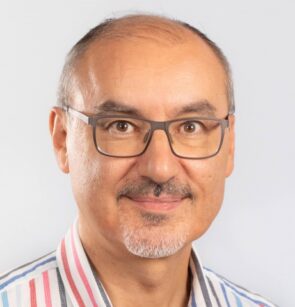
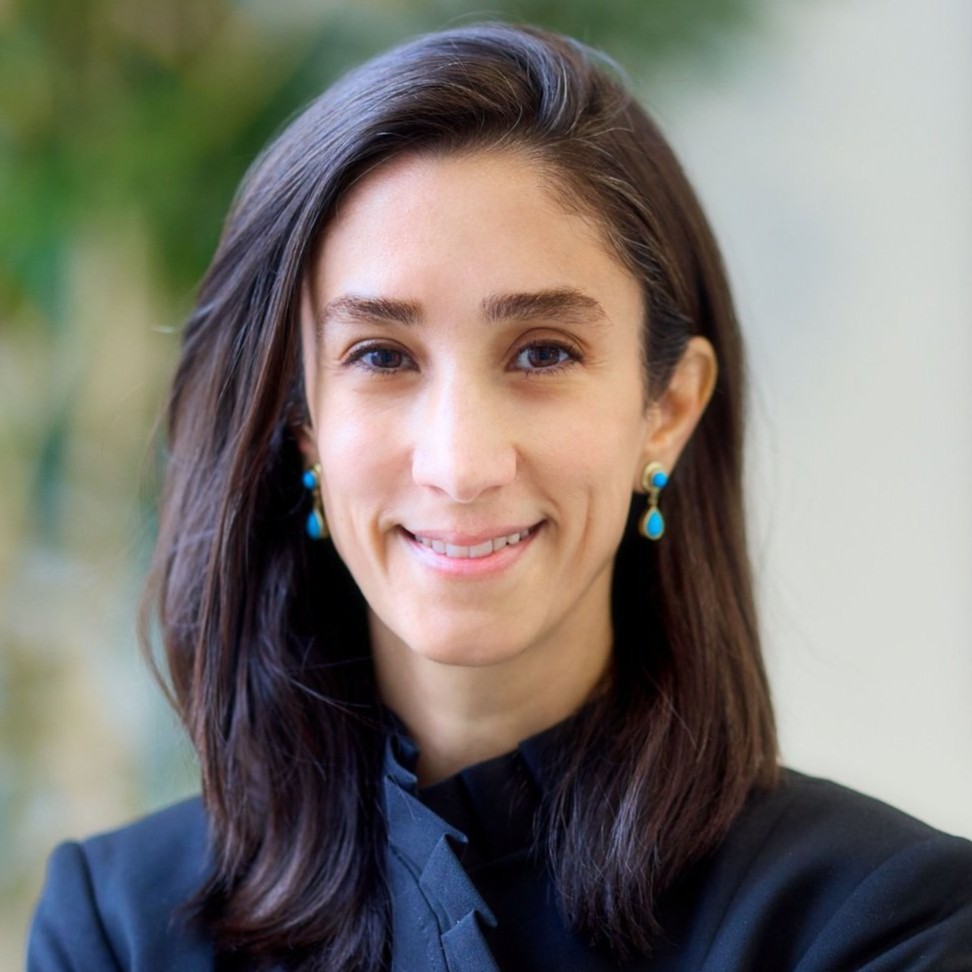
Maria Corrada, ScM, ScD
Dr. María Corrada is a Professor in the Department of Neurology and the Department of Epidemiology and Biostatistics at the University of California, Irvine. She is also leader of the 90+ Core at the UCI Alzheimer’s Disease Research Center. She received her bachelor’s degree at the University of Puerto Rico, and completed a masters in Biostatistics and a doctorate in Psychiatric Epidemiology at the Johns Hopkins School of Public Health in Baltimore, MD. Early in her career, she worked on projects involving the Baltimore Longitudinal Study of Aging, including some of the earliest prospective studies of estrogen replacement therapy, non-steroidal anti-inflammatory drugs, and folate as protective factors for Alzheimer’s disease.
She moved to UCI to help establish The 90+ Study, for which she is a multiple principal investigator. The 90+ Study is a longitudinal epidemiological study of aging and dementia of more than 2,000 well-characterized people aged 90 years and older. Some of her most important contributions have been estimating prevalence and incidence of dementia, as well as investigating the role of multiple pathologies to dementia in this age group. In addition, Dr. Corrada is multiple principal investigator for Life After 90 a recently established life-course study of cognitive impairment and dementia in a racially and ethnically diverse cohort of over 1,000 people aged 90 and older in Northern California.
Dr. Corrada’s research interests include population-based longitudinal studies, the epidemiology of dementia, and through imaging and autopsy studies, identifying factors that correlate with the presence of brain pathologies. Much of her work has been dedicated to understanding the cognitive and physical health of the oldest-old, a rapidly growing, but understudied population.
Christos Davatzikos, PhD
Dr. Christos Davatzikos is the Wallace T. Miller Sr. Professor of Radiology at the University of Pennsylvania and Director of the AI2D Center. Dr. Davatzikos holds secondary appointments in the Department of Biostatistics, Epidemiology and Informatics and the Department of Electrical and Systems Engineering at Penn, as well as in the Bioengineering and Applied Mathematics graduate groups.
He obtained his undergraduate degree from the National Technical University of Athens, Greece in 1989; and his Ph.D. degree from Johns Hopkins in 1994 on a Fulbright scholarship. Dr. Davatzikos then joined the faculty in Radiology, and later in Computer Science, where he founded and directed the Neuroimaging Laboratory. In 2002, Dr. Davatzikos moved to Penn, where he founded and directed the Biomedical Image Analysis section.
His interests are in medical image analysis and machine learning. He oversees a diverse research program focusing on AI methods in Neuroimaging, as well as its application to clinical studies on aging and Alzheimer’s Disease, neuropsychiatric diseases, and brain cancer.
Dr. Davatzikos has served on a variety of scientific journal editorial boards and grant review committees. He is an IEEE fellow, and a fellow of the American Institute for Medical and Biological Engineering, and a member of the US Academy of Radiology Research.
Fanny Elahi, MD, PhD
Dr. Fanny Elahi is a physician-scientist and Associate Professor in the Departments of Neurology, Neuroscience, and Pathology at the Icahn School of Medicine at Mount Sinai in New York City. She serves as Director of Fluid Biomarker Research at the Barbara and Maurice Deane Center for Wellness and Cognitive Health and is one of the leaders at the Alzheimer’s Disease Research Center, where she co-directs the Genetics and Genomics Core and oversees the development of novel blood biomarkers for neurodegenerative diseases. She also has an appointment at the James J. Peters Department of Veterans Affairs Medical Center.
Elahi’s research is pushing the boundaries of methods and approaches and breaking down silos to move the needle on therapeutic discoveries for dementia with a focus on genetic diseases, such as CADASIL. By combining molecular techniques with clinical data, and advanced data analytics, her multidisciplinary research program is studying the link between blood vessel disease and neurodegeneration. A major focus is the development of blood biomarkers and the combination of markers with in vitro models of disease to advance understanding of disease mechanisms and identification of novel drug targets. She is passionate about translating laboratory findings into clinical applications, and drug discovery for dementia-causing diseases.
Elahi has received numerous awards and recognitions for her research but the best reward is yet to come; Elahi is looking forward to the day she will administer disease-modifying treatments to her patients and stop dementia in its tracks. New blood-based biomarkers are rapidly advancing the field—and the therapeutic era in dementia care has begun. There has never been a more exciting time to be a behavioral neurologist-neuroscientist! Elahi continues to evaluate and treat patients in the clinic at Mount Sinai and the VA.


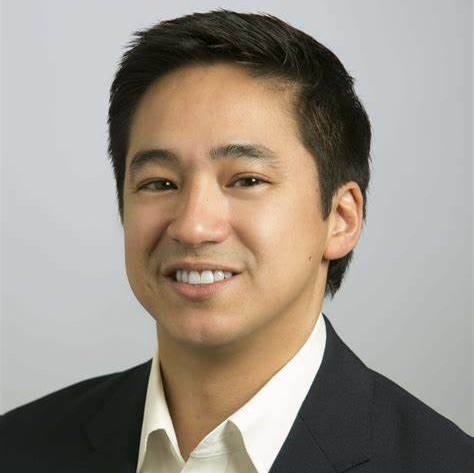
Christopher M. Filley, MD
Dr. Christopher M. Filley, now retired, was Director of the Behavioral Neurology Section, and Professor of Neurology and Psychiatry, at the University of Colorado School of Medicine. He also served as Senior Scientific Advisor for the Marcus Institute for Brain Health.
Dr. Filley evaluated patients referred for behavioral neurology consultation at the Neurobehavior Clinic of the University of Colorado Hospital, providing a regional resource for expert subspecialty care for complex disorders of cognition. Although Alzheimer’s disease has been a major focus of his work, his primary interest is in the behavioral neurology of white matter, including neurologic, psychiatric, neuropsychological, neuroimaging, and neuropathological aspects of a wide variety of white matter disorders. Through his role in the CU Alzheimer’s and Cognition Center Clinical Core, Dr. Filley participated in observational and clinical trials for potential Alzheimer’s disease and other dementia therapeutics.
He is also the author of three monographs – Neurobehavioral Anatomy, The Behavioral Neurology of White Matter, and White Matter Dementia – and he is the senior editor of the textbook Behavioral Neurology & Neuropsychiatry. Dr. Filley recently published an article in The Conversation on the importance of white matter to understanding the brain.
Lawrence Honig, MD, PhD
Dr. Lawrence Honig is a Professor of Neurology at Columbia University Irving Medical Center, at the Vagelos College of Physicians and Surgeons (New York, NY), in the Department of Neurology (Division of Aging and Dementia), the Taub Institute for Research on Alzheimer’s Disease and the Aging Brain, the Gertrude H. Sergievsky Center, and at New York Presbyterian Hospital. He directs the New York State Center of Excellence for Alzheimer’s Disease, co-directs the Lewy Body Disease Association Research Center of Excellence, and the Progressive Supranuclear Palsy Center of Care, and is Deputy Director of the Alzheimer’s Disease Research Center.
Dr. Honig obtained his MD medical degree from the University of Miami (Miami, Florida), and his PhD from the University of California at Berkeley (Berkeley, California). He underwent postgraduate internship in Medicine and residency in Neurology training at Stanford University Medical Center (California). He served on the faculty of the Neurology departments at Stanford University Medical Center, and then at the University of Texas Southwestern Medical Center in Dallas, prior to his arrival at Columbia University, where he has been on the faculty since the year 2000. He is a neuroscientist and board-certified clinical neurologist, with UCNS subspecialty certifications in Behavioral Neurology and Neuropsychiatry, and Geriatric Neurology. His clinical specialization focusses on Alzheimer’s Disease, Lewy Body Dementia, Frontotemporal Dementias, Progressive Supranuclear Palsy, Creutzfeldt-Jakob disease, immune-mediated encephalitides, and other disorders of nervous system aging and degeneration. He is a principal investigator on both observational and clinical drug trials for neurodegenerative conditions including Alzheimer Disease, Frontotemporal Degeneration, Lewy Body Disease, and Progressive Supranuclear Palsy.
Bryan James, PhD
Dr. Bryan James is an epidemiologist at the Rush Alzheimer’s Disease Center (RADC) and Associate Professor in the Department of Internal Medicine, Section of Community Epidemiologic Research, at Rush University Medical Center.
His research focuses on identifying social, psychological, behavioral and medical determinants of Alzheimer’s, dementia, and cognitive decline, as well as describing the societal impact of dementia. Recent focuses include cognitive impairment after hospitalization and the consequences of the timing of a clinical dementia diagnosis.
At the RADC, Dr. James leads the Medicare linkage program, is the faculty lead of the Data Documentation and Distribution team overseeing data and specimen sharing (RADC Research Resource Sharing Hub: www.radc.rush.edu), is faculty co-lead of the Study Operations team, and is a member of the Data and Statistics Core. He is the Research Education Component (REC) Core leader of the Rush Alzheimer’s Disease Research Center (ADRC) P30 Grant, overseeing mentorship and training. In addition to his RADC work, Dr, James has contributed to the Alzheimer’s Association Annual Facts & Figures Report since 2010, hosts the podcast of the Society for Epidemiologic Research, Epidemiology Counts, is social media editor for the American Journal of Epidemiology (Twitter handle: @BryanDJames), and reviewing editor for Alzheimer’s & Dementia. He is an active member of the Alzheimer’s Association International Society to Advance Alzheimer’s Research and Treatment (ISTAART), the Society for Epidemiological Research (SER), and the Gerontological Society of America (GSA).
Dr. James received his PhD in epidemiology from the Johns Hopkins Bloomberg School of Public Health in 2009, and his master of bioethics from the University of Pennsylvania in 2001.
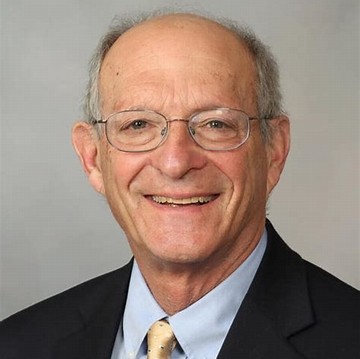
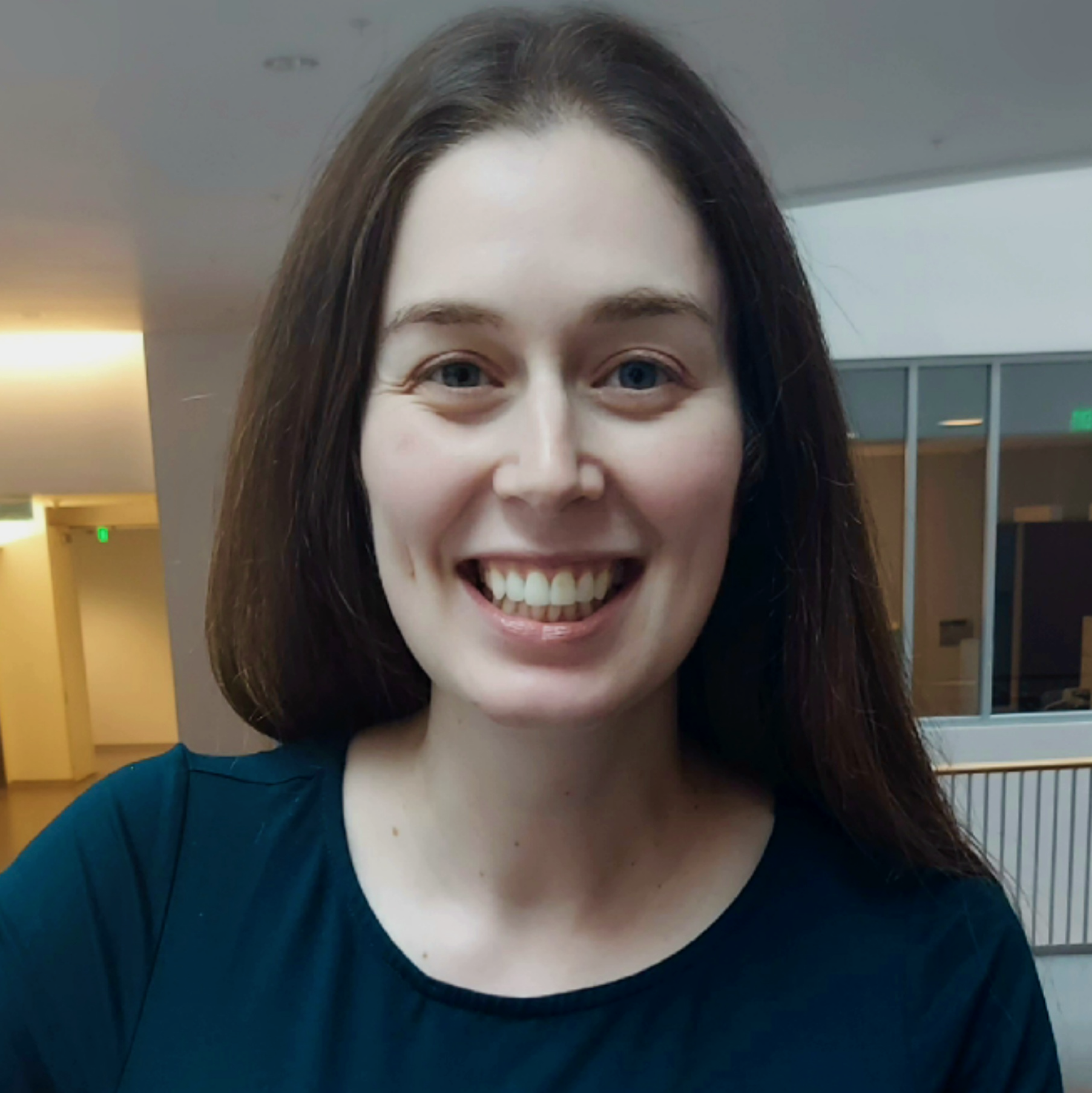
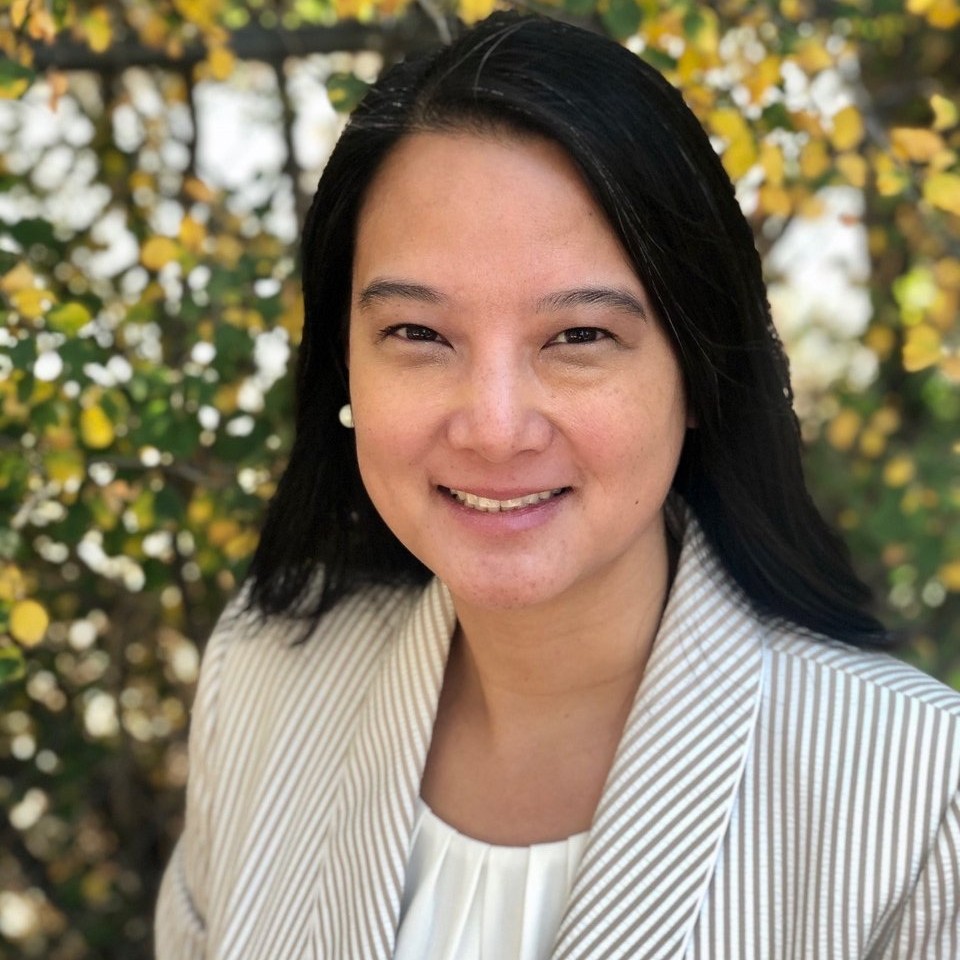
David Knopman, MD
Courtney Lane-Donovan, MD, PhD
Dr. Courtney Lane-Donovan is an Assistant Professor in the Division of Memory and Aging of the Department of Neurology at the University of California, San Francisco. For her bachelor’s degree, she studied biological engineering and biology at the Massachusetts Institute of Technology. She completed her MD/PhD at UT Southwestern. Her doctoral thesis in the lab of Dr. Joachim Herz focused on ApoE receptor signaling in transgenic mouse models of Alzheimer’s disease. She then completed internal medicine internship and neurology residency at UCSF, followed by a research fellowship in behavioral neurology.
In the lab, Dr. Lane-Donovan’s research group focuses on revealing the basic mechanisms of aging that lead to neurodegenerative disorders, with an emphasis on lysosomal function. For her research, she uses mouse models of aging and disease and iPSC-derived iNeurons.
Clinically, she sees patients with a variety of aging-related neurogenerative conditions as well as a participating in clinical trials as a PI or sub-PI.
Judy Pa, PhD
Dr. Judy Pa is the Co-Director of the ADCS and Professor of Neurosciences. Dr. Pa has 20 years of human neuroimaging experience and directs a research lab focused on Alzheimer’s prevention and risk factors. Dr. Pa recently moved from USC in which she was Project Leader of their Program Project Grant on Vascular Contributions to Alzheimer’s disease, Imaging Core Co-Leader of their Alzheimer’s Disease Research Center, and Co-Director of the USC SMART-VR Center. One branch of her research program is developing and testing new multi-domain combination interventions using technology, such as virtual reality and remote activity monitoring, with the goal of preserving brain health and cognition.
Dr. Pa is currently the Principal Investigator of 2 ongoing National Institutes of Health behavioral intervention trials with a focus on physical and cognitive activities. She also leads a research program on big data approaches to investigate the interplay between biological sex and APOE genotype, two key risk factors for Alzheimer’s disease.
Dr. Pa is an internationally recognized leader in lifestyle-based interventions for brain health and whose research has been featured on MSNBC, US News, Larry King Live, and the Hallmark Channel with Maria Shriver. She is dedicated to mentoring the next generation of scientific leaders, early career researchers, graduate students, and data enthusiasts.
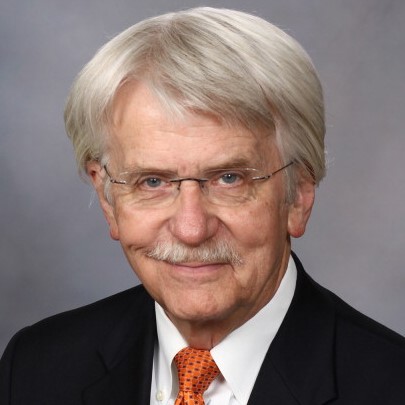
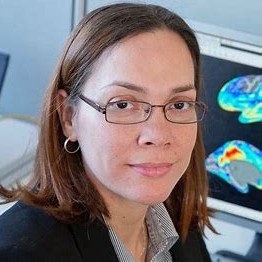

Ronald Petersen, MD, PhD
Dr. Ronald Petersen is a national leader in the field of Alzheimer’s research. He is the director of the Mayo Alzheimer’s Disease Research Center and the Mayo Clinic Study on Aging. He has authored over 550 peer-reviewed articles and edited five books on memory disorders, aging, and Alzheimer’s disease. Dr. Petersen received his Ph.D. in Experimental Psychology from the University of Minnesota and graduated from Mayo Medical School in 1980. He joined the staff of the Mayo Clinic in 1986. He became the Cora Kanow Professor of Alzheimer’s Disease Research in 2000, and was named the Mayo Clinic Distinguished Investigator in 2011.
Dr. Ronald Petersen is one of the recipients of the 2004 MetLife Award for Medical Research in Alzheimer’s Disease and the 2005 Potamkin Prize for Research in Picks, Alzheimer’s, and Related Disorders of the American Academy of Neurology. He also received the inaugural Ronald and Nancy Reagan Research Institute Award in 2004 from the Alzheimer’s Association and the inaugural Leon Thal Prize of the Lou Ruvo Brain Institute in 2007. In 2012, he received the Khachaturian award of the Alzheimer’s Association and the Henry Wisniewski Lifetime Achievement Award in 2013.
In 2011, he was appointed by the Secretary of Health and Human Services to serve as the chair of the Advisory Committee on Research, Care, and Services for the National Alzheimer’s Project Act and was appointed to the World Dementia Council in 2014 by UK Prime Minister David Cameron.
Yakeel Quiroz, PhD
Monica Rosselli, PhD
Dr. Mónica Rosselli is a Professor of neuropsychology and Associate Chair of the Department of Psychology at Florida Atlantic University, Davie, Florida, and director of the FAU Neuropsychology Laboratory. She has been particularly interested in analyzing neuropsychological differences across culturally diverse populations. Her research focuses on the neuropsychology of normal and abnormal aging, as well as the influence of cultural and educational factors on cognitive test performance and brain biomarkers in mild cognitive impairment and dementia. She has also studied the contribution of bilingualism to cognitive and brain reserve.
More recently, Dr. Rosselli has explored the association between driving skills and cognitive abilities, predominantly executive functions, for a longitudinal study of typical and atypical aging sponsored by the National Institute of Aging. She has developed several neuropsychological tests for Spanish-speaking individuals and has published numerous peer-reviewed journal articles investigating cross-cultural neuropsychology.
Dr. Rosselli is also an investigator at the 1FLORIDA Alzheimer’s Disease Research Center supported by the National Institutes of Health and the Florida Department of Health. She has received a lifetime achievement award from the Hispanic Neuropsychological Society and is the President-Elect of the Asociación Latinoamericana de Neuropsychología.

Stephen Salloway, MD
Dr. Stephen Salloway is the founding Director of the Memory and Aging Program at Butler Hospital in Providence, Rhode Island. He is the Martin M. Zucker Professor of Psychiatry and Human Behavior and Professor of Neurology at the Warren Alpert Medical School of Brown University. He received his MD from Stanford Medical School and completed residencies in neurology and psychiatry at Yale University.
His research focuses on biomarker and drug development for prevention and early treatment of Alzheimer’s disease (AD). During his time at Brown, the Butler Hospital Memory and Aging Program (MAP) has become an internationally recognized center for clinical research in Alzheimer’s disease. The MAP has helped pioneer the use of PET ligands for amyloid and tau to study the evolution of AD pathophysiology in autosomal dominant and sporadic AD. The program has had a lead role in testing targeted treatments, such as BACE inhibitors and monoclonal antibodies, alone and in combination, to lower amyloid plaques and neurofibrillary tangles, as well as novel approaches, such as deep brain stimulation, to slow the progression of AD. The MAP is developing new strategies using genetic testing and brain imaging to recruit cognitively normal elderly at increased risk for AD for prevention studies.
Dr. Salloway has published more than 370 scientific articles and abstracts and has edited 3 books. These include lead authorship on pivotal trials in the New England Journal of Medicine, the Lancet, Nature, and JAMA Neurology. Dr. Salloway is a past president of the American Neuropsychiatric Association, a fellow of the American Academy of Neurology, and a member of the American Neurological Association. He serves on the Steering Committees for landmark NIH studies such as the Alzheimer’s Disease Neuroimaging Initiative, the Dominantly Inherited Alzheimer’s Network, and the Alzheimer’s Disease Clinical Trial Consortium. He is a scientific reviewer for the National Institutes of Health and for more than 30 journals, universities, and research foundations. Dr. Salloway lectures widely on prevention and early intervention for Alzheimer’s disease.
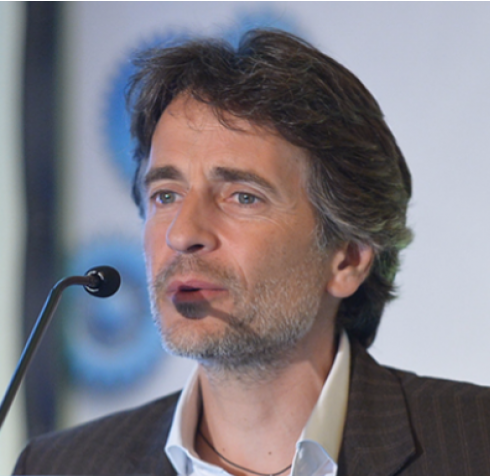
Nikolaos Scarmeas, MD, MS
Dr Nikolaos Scarmeas received his MD degree from the Medical School Of National And Capodistrian University Of Athens in 1992.
Dr Scarmeas came to the US in 1996 and completed a Neurology residency training at Columbia University Medical Center in New York in 2000 and a Masters degree in neurology biostatistics from the Mailman School of Public Health Columbia University.
Since 2008, Dr Scarmeas is Associate Professor of Neurology at Columbia University and is involved in clinical, teaching and research activities in the Department of Neurology and the Alzheimer’s Disease Research Center at Columbia Presbyterian Medical Center.

Paola Sebastiani, PhD
Dr. Paola Sebastiani is Professor of Medicine at Tufts University School of Medicine and Director of the BERD Center/Director of the Center for QMDS; Co-director of the BHDSC.
She is a multidisciplinary biostatistician, with a long track record of developing new methodologies in Bayesian statistics, decision theory, machine learning, artificial intelligence, and statistical experimental design, in addition to teaching, mentoring, and leading interdisciplinary research projects. She introduced innovative Bayesian techniques for the analysis of genomic and genetic data and was a pioneer in using networks to model the genetic and phenotypic basis of the complications of sickle cell anemia. She is also a renowned biostatistician in the fields of the biology and epidemiology of human aging and longevity: she introduced original methods to design observational studies of human longevity, and to discover genetic and non-genetic risk factors that contribute to healthy aging.
She is Co-PI of the NIH funded Longevity Consortium, and of the Long Life Family Study. She is also multiple PI of a project to characterize the molecular targets of the protective APOE2 allele, and of a project that will generate multi-omics profiles of humans and other species to discover targets for healthy aging (Integrative longevity Omics).
Her current research focuses on the genetics and epidemiology of extreme human longevity, analysis of rare genetic variants, and integrative analysis of multi-omics data using statistical and machine learning methods.

Chris van Dyck, MD
Dr. Christopher H. van Dyck is Professor of Psychiatry, Neurology, and Neuroscience; Director of the Alzheimer’s Disease Research Unit; Director, Yale Alzheimer’s Disease Research Center; Director, Division of Aging and Geriatric Psychiatry.
His research focuses on neuroimaging and therapeutic studies of Alzheimer’s disease (AD) and brain aging. His current imaging research utilizes positron emission tomography (PET) to study the beta-amyloid (Aβ) and tau proteins, as well as the synaptic targets SV2A and mGluR5. He and his team are examining the full spectrum of AD, including AD-dementia, the prodromal condition of amnestic Mild Cognitive Impairment (aMCI), and preclinical AD—in individuals at high familial and genetic risk.
He also has extensive experience in the conduct and leadership of therapeutic trials in AD. Since 1991 he has led or participated in approximately 90 clinical trials for AD, including the prodromal or preclinical stages. He currently serves on the Steering and Executive Committees and Co-Chairs the Protocol Evaluation Committee of the Alzheimer’s Clinical Trials Consortium (ACTC). His research accomplishments have been recognized by receipt of the 1996 Junior Investigator Award of the American Association of Geriatric Psychiatry, the 2005 Compassion and Cure Award of the Alzheimer’s Association, and the 2017 Leader in Advancing Research Award of the Alzheimer’s Association.
Public Educational Forum Program
friday, may 2, 2025
1o:00 aM US Eastern Time.
